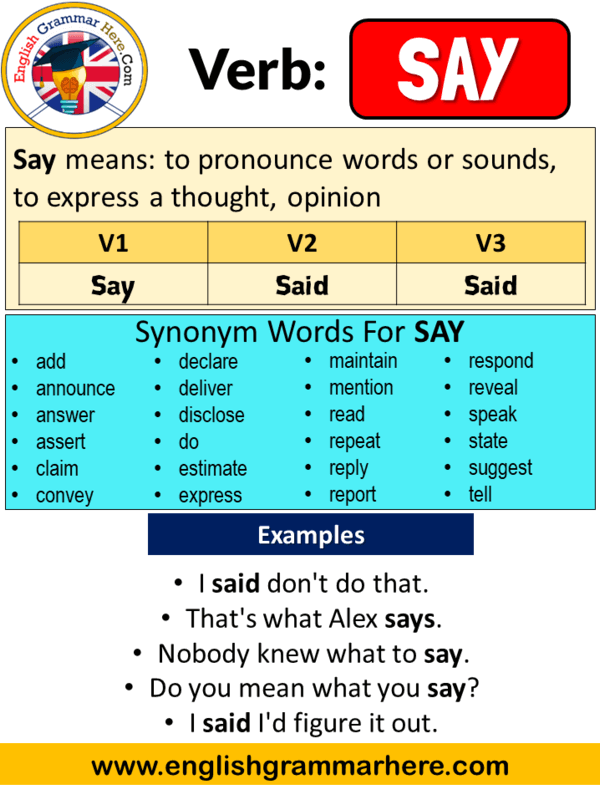
Say Past Simple, Simple Past Tense of Say Past Participle, V1 V2 V3
Past participle: said Simple past: said Irregular forms Auxilliary verb Spelling change Use contractions Indicative Present Preterite I said you said he/she/it said we said they said you said Future Perfect Present Past Future I will have said you will have said he/she/it will have said we will have said they will have said you will have said
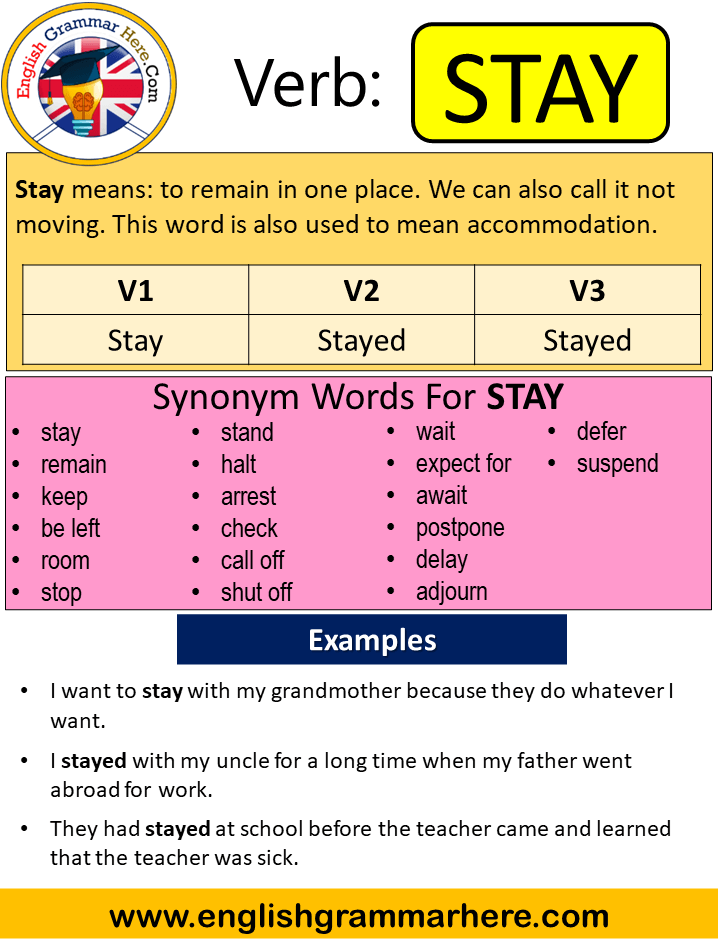
Stay Past Simple, Simple Past Tense of Stay, Past Participle, V1 V2 V3
The Past Simple Tense (also called the simple past tense) Click here to download this explanation as a pdf. Click here to learn about how to USE the past simple. It's similar to the present simple because it has different rules for the verb 'be', which becomes 'was' or 'were': The Past Simple with 'be' Here's how to make the positive:

View Ejemplos De Wish Past Simple Full Sado
Past Simple: said Past Partciple: said Present Partciple: saying Third Person Singular: says Definition: To express in words. Example (s): Jane wants to meet you. She's got something to say to you. I always say my prayers before I go to bed. Similar verbs The irregular verbs in the table below have the same pattern as say. They are:
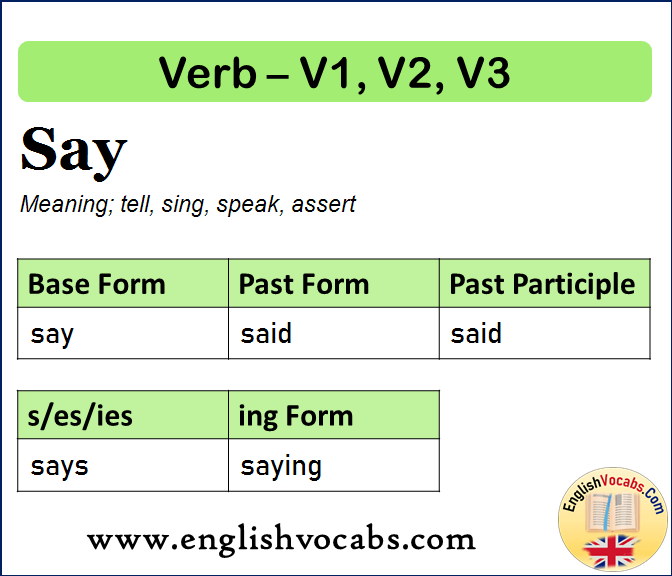
Sit Past Simple, Past Participle, V1 V2 V3 Form of Sit English Vocabs
English Conjugate Toolbox: Models British vs. American English Auxiliaries, modals Irregular verbs say Infinitive to say Preterite said Past participle said Model : pay Auxiliary : have, be Other forms: say oneself / not say Contractions Advertising Indicative Present I say you say he/she/it says we say you say they say Preterite I said you said
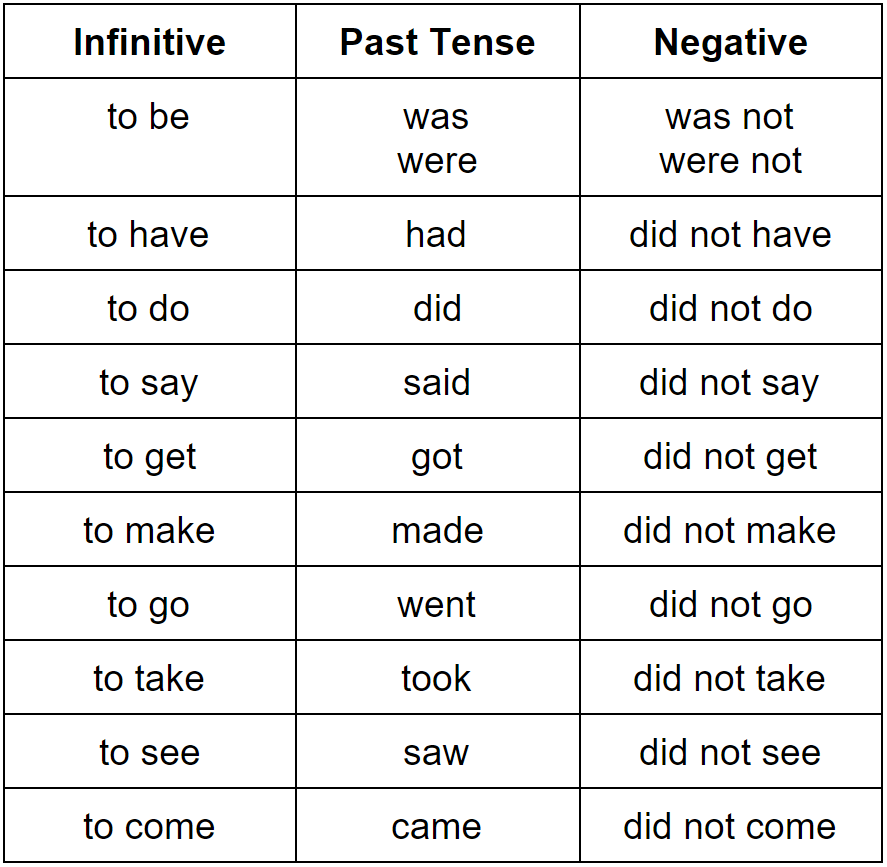
Simple Past Tense TO weBBie
Say: 2. Simple Past: Said: 3. Past Participle: Said : 4. Present Participle: Saying: 5. 3rd Person Singular: Says: Table of Contents. Say past tense; Say past participle; Say verb forms V1 V2 V3 V4; Conjugation of Say. More verb past tense ; Say past tense. Said: Said is the past tense of the word say.
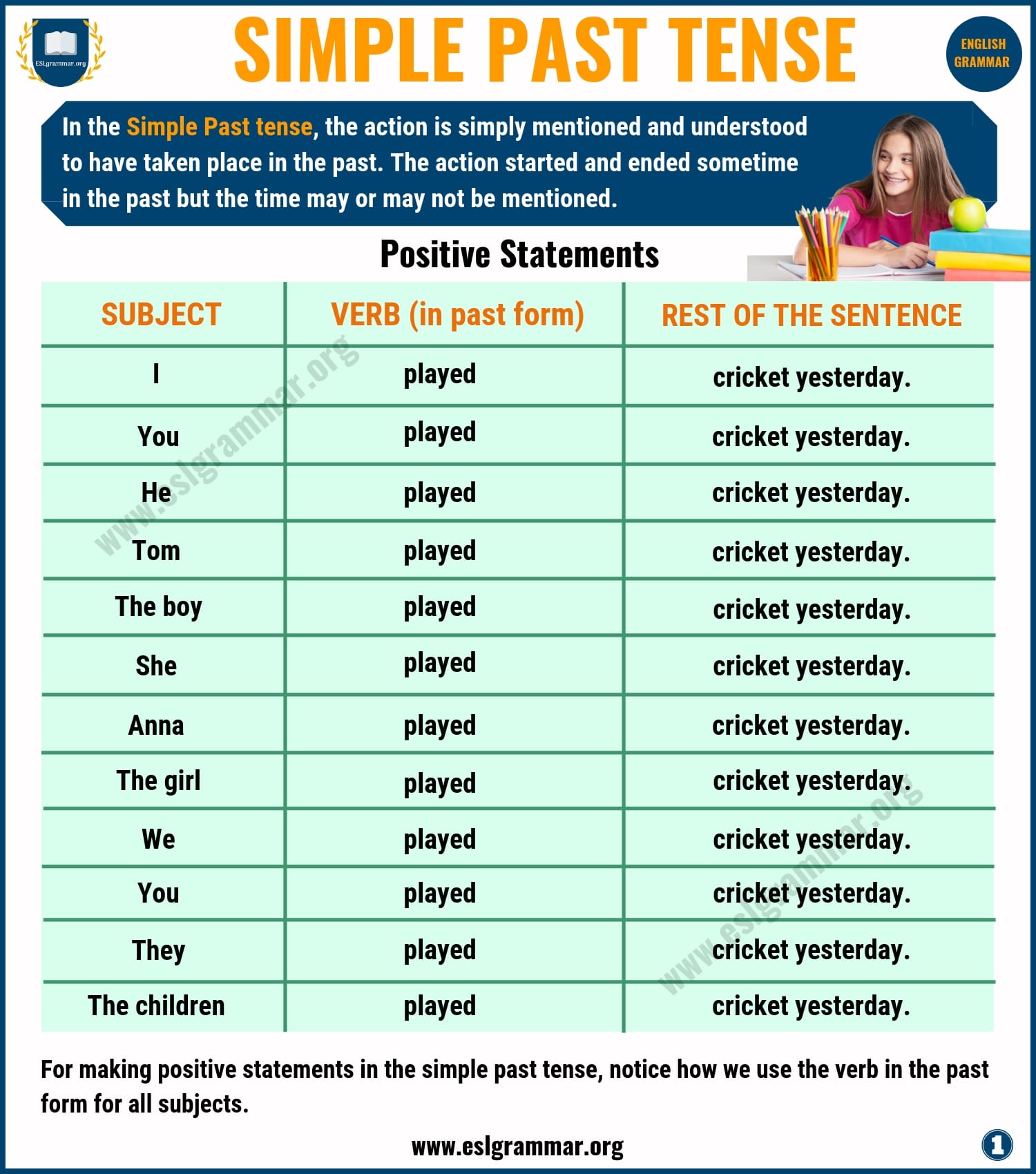
Verb use in past simple
The infinitive of the word form is "say." The present participle form is "saying." The past tense form is "said" and past participle form is "said." Understanding verb tenses. The general grammar rules that govern past tenses are as follows. The simple past tense form is created by adding a -ed or -d affix to the root word of.

34+ Say In Past Simple Simple Perfecto
past participle: (to) say saying said definition in Spanish in French in Italian Indicative Perfect tenses Continuous (progressive) and emphatic tenses Compound continuous (progressive) tenses Conditional Imperative Subjunctive Note: One may encounter the archaic present tense forms thou sayest, thou say'st, thou sayst, s/he sayeth, and s/he saith.

Pin on A1 English
Past simple of say You are look at the page for irregular verb say Past simple said [sed] The past simple tense (sometimes called preterite, simple past or past indefinite) is the basic form of the past tense. This is one of the most common past tenses and can describe a lot of events.
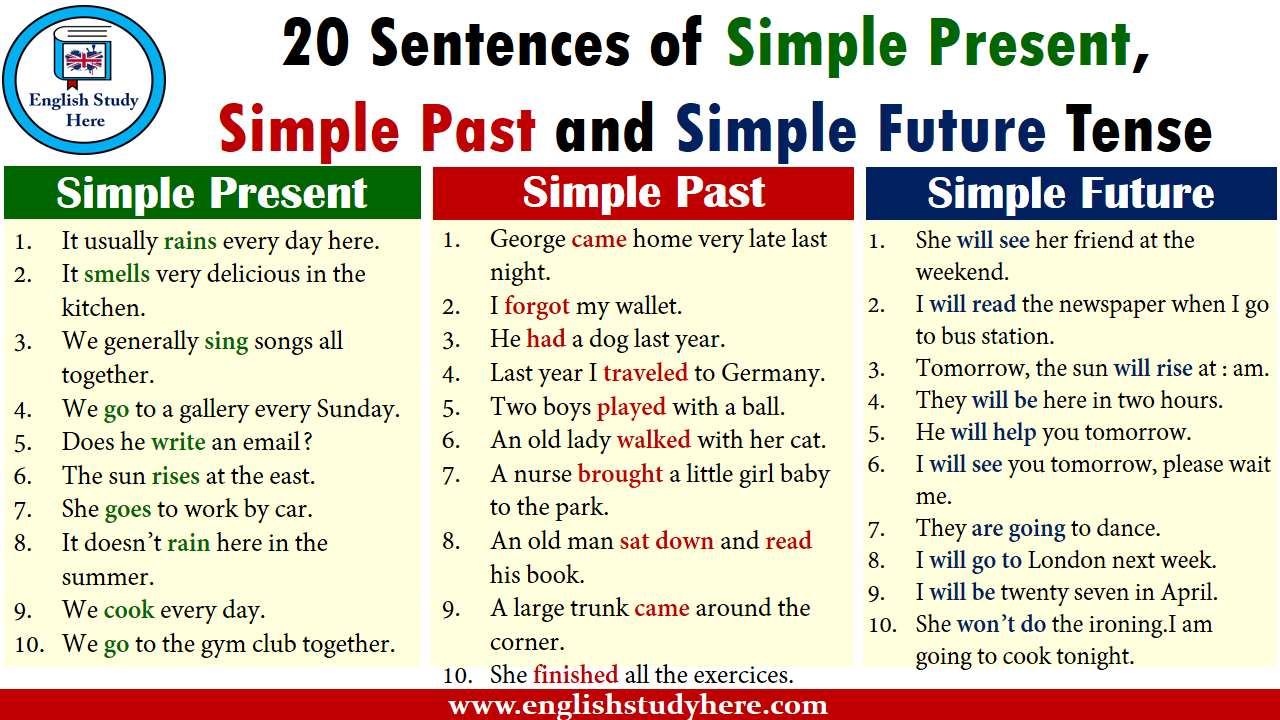
Sentences of Simple Past Tense Archives English Study Here
Irregular Verbs List Definition: To Say Irregular verb: To Say Verb conjugation: Say - Said - Said Meaning of 'To Say' To speak words Conjugation of verb 'Say' Irregular Verbs Following a Similar Pattern Verbs like: Subscribe to Ad-Free Browsing Enjoy a seamless learning experience without interruptions from advertisements. Find out More

34+ Say In Past Simple Simple Perfecto
Say Past Simple, Simple Past Tense of Say Past Participle, V1 V2 V3 Form Of Say Advertisements Say means: move from one place to another; travel. V1 V2 V3 Form of Say Synonym Words For SAY add announce answer assert claim convey declare deliver disclose do estimate express maintain mention read repeat reply report respond reveal speak state suggest

past simple English ESL worksheets pdf & doc
Past simple Level: beginner With most verbs, the past tense is formed by adding -ed: called liked wanted worked But there are a lot of irregular past tense forms in English. Here are the most common irregular verbs in English, with their past tense forms: We use the past tense to talk about: something that happened once in the past:
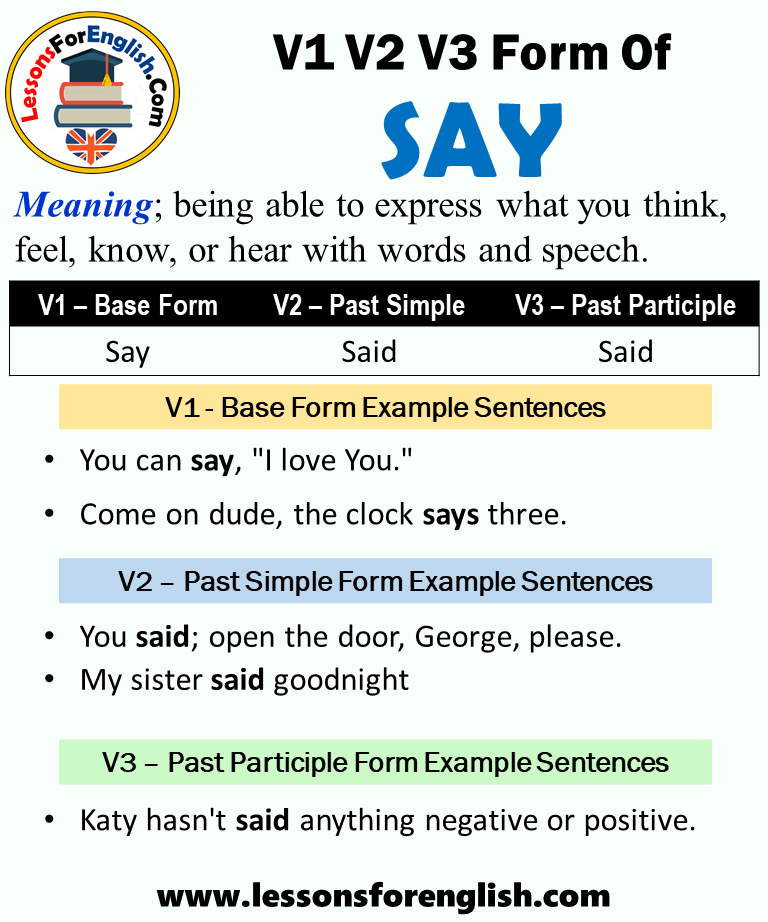
Past Tense Of Say, Past Participle Form of Say, Say Said Said V1 V2 V3
Past Simple Past Participle Gerund ; say: said: said: saying [seɪ] [sed] [sed] [ˈseɪɪŋ] [seɪ] [ˈsed] [ˈsed] [ˈseɪɪŋ] Trainer Settings. Break into pronouns . Shuffle cards . Nominal forms . Past Simple Past Participle Gerund. Simple tense . Present Simple Past Simple Future Simple. Continuous tense .
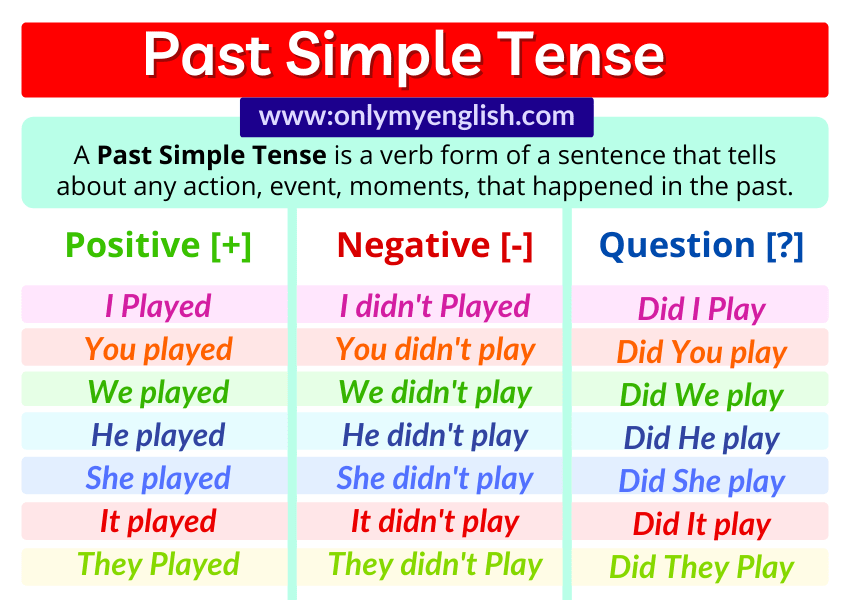
Past Simple Tense Definition, Examples, Rules
Simple / Indefinite Present Tense He/She/It says . I say. You/We/They say. Present Continuous Tense He/She/It is saying. I am saying. You/We/They are saying. Present Perfect Tense He/She/It has said. I have said. You/We/They have said. Present Perfect Continuous Tense He/She/It has been saying. I have been saying. You/We/They have been saying.

a poster with words and pictures on it that say past simple or past
BUSINESS + TRAVEL ENGLISH, from BEGINNER 2 years ago. The past tense of say is said Present Tense: Say Past Tense: Said Past Participle: Said Present Participle: Saying Past Participle: Said What she said was fair comment . He said he wanted to go to town. No promise, only said not over of lies.
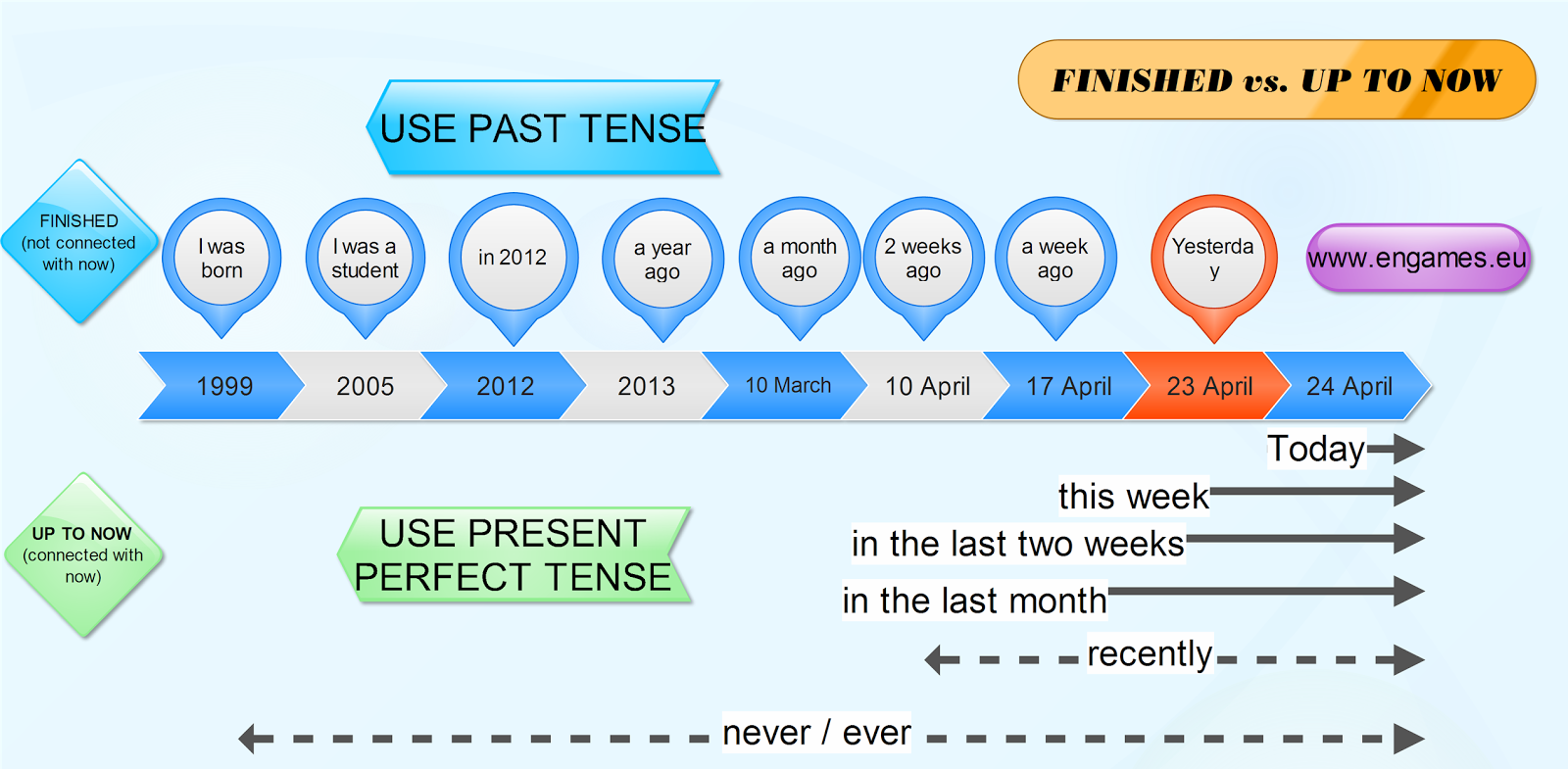
Keep your English alive! PAST SIMPLE vs. PRESENT PERFECT
Verb Tenses Past simple — say in past simple said (V2) . Future simple — say in future simple is say (will + V1) . Present Perfect — say in present perfect tense is said (have/has + V3) . Past Perfect — say in past perfect tense is said (had + V3) . say regular or irregular verb? 👉 Is 'say' a regular or irregular verb?

หลักการใช้ Past Simple Tense NockAcademy
say = es. volume_up. decir. Translations Definition Synonyms Conjugation Pronunciation Examples Translator Phrasebook open_in_new.